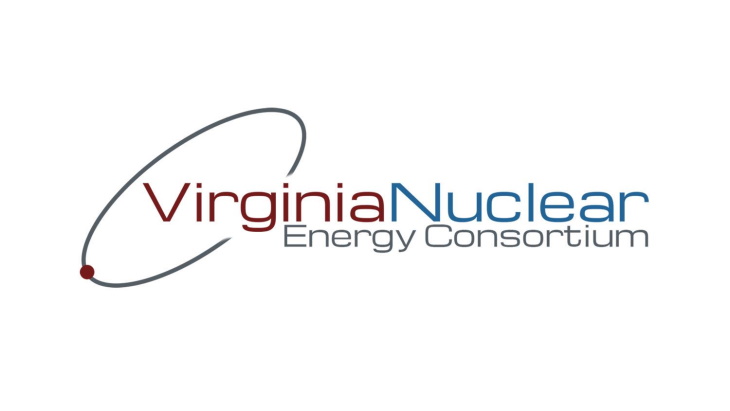Virginia issues strategic plan for nuclear energy
Virginia's nuclear industry will focus on four key areas of advanced generation technologies, economic development, workforce education, and research and development in order to help meet its carbon-free goals, according to a newly released strategic plan which has been drawn up at the direction of the Virginia government.

(Image: VNEC)
The Commonwealth of Virginia aims to achieve 100% carbon-free electricity generation by 2045. State legislation signed last year directed the state to work with nuclear energy stakeholders to develop the plan to leverage nuclear energy to promote economic development, protect the environment, and support national security. The result is Virginia is Nuclear: 2020-2024 Strategic Plan, which has been prepared by the Virginia Nuclear Energy Consortium Authority (VNECA) and Virginia Nuclear Energy Consortium (VNEC) in coordination with the Virginia Department of Mines, Minerals and Energy, the Virginia Economic Development Partnership, the Virginia Secretary of Commerce and Trade and the Virginia Secretary of Education.
The roadmap sets five strategic goals for the period 2020-2024:
Developing a "carbon roadmap" for the deployment of economical and technically feasible electricity sources needed to meet actual electrical demand profiles and carbon-free energy plan targets;
Looking into public-private partnerships for siting and construction of a small modular reactor or other advanced reactor;
Ensuring that education and training programmes are provide the necessary educational and work-based knowledge required to meet the demands of the nuclear energy workforce;
Establishing a nuclear energy generation target for nuclear energy - "if it is in the interest of the Commonwealth’s long-term clean energy goal";
Promoting diversity and inclusion in STEM disciplines.
Some 32% of Virginia's power - and 95% of its carbon-free energy - is generated by nuclear plants, the report notes. An estimated 100,000 jobs across the Commonwealth are directly linked to the nuclear sector, while five universities as well as community colleges offer nuclear-related research, degree programmes and workforce training. In addition, two federal non-nuclear facilities in Virginia are engaged in research, development and use of nuclear technology. "Virginia is the prime location for next-gen reactors due to existing nuclear assets, expertise and capability," it says.
"The nuclear industry is vital to the Commonwealth and nuclear needs to be included as we explore all opportunities for carbon-free energy," Delegate Chris Hurst, a patron of the 2020 legislation, said. "The plan shows how Virginia is a national leader in nuclear energy, it encourages research taking place at our outstanding universities, and new economic development through advanced technology and manufacturing."
"As an industry, we are excited to be moving forward, with common goals and a shared mission, to increase the beneficial contribution made by nuclear to Virginia" VNECA Chairman Tom DePonty said. "The strategic plan will ensure carbon-free nuclear energy continues to play a key role in our economic, and environmental health."
Researched and written by World Nuclear News
- China Institute of Atomic Energy
- Nuclear Power Institute of China
- Southwestern Institute of Physics
- China Nuclear Power Operation Technology Corporation, Ltd.
- China Nuclear Power Engineering Co., Ltd.
- China Institute for Radiation Protection
- Beijing Research Institute of Uranium Geology (BRIUG)
- China Institute of Nuclear Industry Strategy (CINIS)
- China Nuclear Mining Science and Technology Corporation


